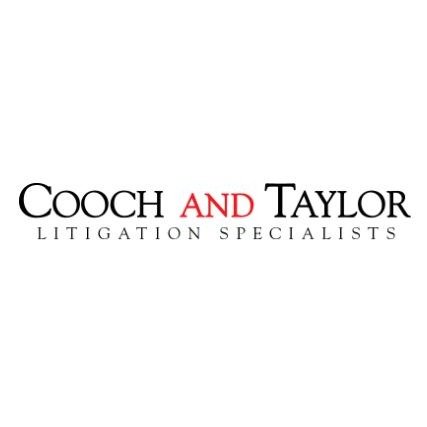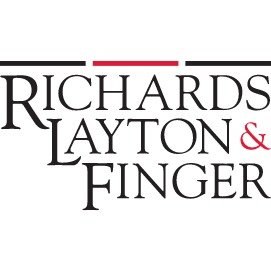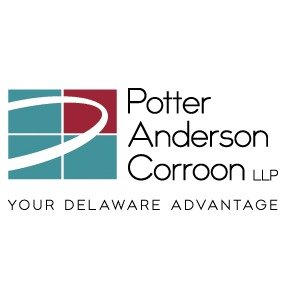Best Business Lawyers in Delaware
Share your needs with us, get contacted by law firms.
Free. Takes 2 min.
Or refine your search by selecting a city:
List of the best lawyers in Delaware, United States
United States Business Legal Questions answered by Lawyers
Browse our 1 legal question about Business in United States and read the lawyer answers, or ask your own questions for free.
- How do I legally protect my idea before selling or licensing it to a company?
- I have a makeup product idea that I want to sell or license, not the product itself. It is influenced by a product that was recently launched. Therefore, I want to sell/license to the company that launched said product. After some research, I contacted a patent attorney who explained that... Read more →
-
Lawyer answer by P.O OHIKHENA & Co
Good day,A patent will not be applicable since it's still an idea. You can go into an MOU(Memorandum of understanding) with the said company and also an NDA.You can contact me for my insight. Visit our profile and send us...
Read full answer
United States Business Legal Articles
Browse our 2 legal articles about Business in United States written by expert lawyers.
- NY 2026 Corp Tax: Thresholds & Franchise
- For tax years beginning on or after January 1, 2026, New York businesses will only be required to make estimated tax payments if their expected New York tax (including any MTA surcharge) is at least $5,000, up from $1,000. Many small and some mid-sized New York corporations and S corporations... Read more →
- Texas AI Compliance 2026 United States Data Privacy Rules
- By 2026, Texas agencies and many businesses that build, host, or support AI tools for government or consumer-facing decisions will face stricter disclosure and anti-discrimination requirements. Texas is pairing its new data privacy framework (Texas Data Privacy and Security Act) with AI-specific rules that target "algorithmic discrimination" in areas like... Read more →
About Business Law in Delaware, United States
Delaware is renowned for its business-friendly environment and has long been the legal home to countless companies of all sizes, from small startups to major multinational corporations. Business law in Delaware covers the rules and regulations governing how businesses are formed, operated, and dissolved within the state. The Delaware General Corporation Law (DGCL) is one of the most advanced and flexible corporate statutes in the United States, making Delaware a popular jurisdiction for incorporation. The state courts, particularly the Delaware Court of Chancery, are well respected for efficiently handling corporate disputes and business litigation, contributing to predictability and stability for businesses operating there.
Why You May Need a Lawyer
Engaging a lawyer with experience in Delaware business law is often essential for several reasons. Common situations include:
- Forming a new corporation, limited liability company (LLC), or partnership
- Drafting and negotiating business contracts and agreements
- Handling mergers, acquisitions, or reorganizations
- Resolving business disputes or litigation
- Navigating regulatory compliance and reporting obligations
- Protecting intellectual property
- Advising on taxation and structuring for efficiency
- Ensuring compliance with state-specific employment laws
- Assisting with dissolution or sale of a business
Because Delaware law contains unique provisions that can significantly impact your business decisions, seeking professional legal guidance can help you avoid costly mistakes and achieve your business objectives more effectively.
Local Laws Overview
There are several key aspects of Delaware's local laws that are especially relevant to anyone doing business in the state:
- Delaware General Corporation Law (DGCL): This legal framework governs most corporations formed in Delaware and is highly regarded for its clarity and flexibility.
- Delaware Court of Chancery: This is a specialized court that handles business disputes without juries, known for its expertise and swift decisions in matters of corporate law.
- Business Entity Options: Delaware offers multiple entity types, including C corporations, S corporations, LLCs, LLPs, and more, each with distinct advantages under Delaware law.
- Registered Agent Requirement: Every Delaware business must maintain a registered agent with a physical address in the state.
- Annual Franchise Tax and Reporting: Corporations must file annual reports and pay franchise taxes, the amount of which can vary significantly depending on entity type and size.
- Privacy and Confidentiality: Delaware law allows for a high degree of privacy for business owners, as shareholder and director information is not required to be made public in many cases.
- Fiduciary Duties: Directors and officers of Delaware companies are subject to well-defined fiduciary duties, including the duties of care and loyalty to the corporation.
- Business Licenses and Permits: Certain types of businesses require additional state or local licensing, depending on the location and nature of operations.
Frequently Asked Questions
What makes Delaware so popular for incorporating businesses?
Delaware’s flexible corporate laws, business-friendly court system, and efficient incorporation process make it a top choice for businesses. The state’s legal system provides predictability and protection for owners and shareholders.
Can I incorporate a Delaware business if I do not live in Delaware?
Yes, you do not have to be a resident of Delaware or even the United States to form a company there. You must, however, maintain a registered agent with a physical address in Delaware.
What kinds of business entities can I form in Delaware?
Common entities include corporations (C and S corporations), limited liability companies (LLCs), limited partnerships (LPs), and limited liability partnerships (LLPs). Each has its own legal and tax implications.
Is it necessary to have a physical office in Delaware to operate my business?
No, but you must have a registered agent with a physical address in Delaware to receive legal documents and state correspondence.
What is a registered agent?
A registered agent is a person or company designated to receive official legal and tax documents on behalf of your business within Delaware.
Do I have to pay taxes if I incorporate in Delaware?
Delaware does not tax out-of-state income for corporations that do not operate within Delaware. However, annual franchise taxes and report filing are still required. Businesses operating in other states may also be subject to taxes in those states.
How do Delaware’s corporate laws protect business owners and shareholders?
Delaware’s laws provide strong protections for directors, officers, and shareholders, including well-defined fiduciary duties and the ability to limit liability through various statutory provisions.
Are Delaware business court cases decided by juries?
Most business disputes, especially those involving corporations, are resolved in the Delaware Court of Chancery, which does not use juries. Instead, cases are decided by experienced judges (chancellors).
What is the Delaware franchise tax, and who must pay it?
The franchise tax is a fee paid by corporations to the state for the privilege of being incorporated in Delaware. All corporations, regardless of their business activity, must pay the tax and file an annual report.
Should I hire a lawyer to incorporate my Delaware business?
While it is possible to complete incorporation paperwork on your own, working with a lawyer ensures your entity is properly structured, compliant with laws, and suited to your specific business goals.
Additional Resources
If you need assistance or more information, the following resources can help:
- Delaware Division of Corporations: Main agency for business filings and corporate records
- Delaware Court of Chancery: Handles most business disputes and corporate litigation
- Small Business Administration (SBA) Delaware District Office: Provides support and resources for startups and small businesses
- Delaware State Chamber of Commerce: Offers networking, advocacy, and business information
- Local law firms and bar associations: Many offer free consultations and business law guidance
Next Steps
If you are considering forming a business or facing a legal issue related to your company in Delaware, here are some suggested steps:
- Define Your Needs: Determine what type of legal help you need, such as entity formation, contracts, or dispute resolution.
- Research Attorneys: Look for law firms or attorneys experienced in Delaware business law. Reading reviews and checking credentials can help you choose the right professional.
- Schedule Consultations: Many lawyers offer initial consultations. Bring all relevant documents and questions to maximize the value of your meeting.
- Evaluate Your Options: Discuss recommended strategies, estimated costs, and timelines before deciding how to proceed.
- Stay Informed: Keep up to date with Delaware legal requirements and obligations affecting your business to remain in compliance.
Taking the right legal steps from the start can save your business time and money and help you avoid or quickly resolve challenges down the road. When in doubt, consult an attorney with experience in Delaware business law.
Lawzana helps you find the best lawyers and law firms in Delaware through a curated and pre-screened list of qualified legal professionals. Our platform offers rankings and detailed profiles of attorneys and law firms, allowing you to compare based on practice areas, including Business, experience, and client feedback.
Each profile includes a description of the firm's areas of practice, client reviews, team members and partners, year of establishment, spoken languages, office locations, contact information, social media presence, and any published articles or resources. Most firms on our platform speak English and are experienced in both local and international legal matters.
Get a quote from top-rated law firms in Delaware, United States — quickly, securely, and without unnecessary hassle.
Disclaimer:
The information provided on this page is for general informational purposes only and does not constitute legal advice. While we strive to ensure the accuracy and relevance of the content, legal information may change over time, and interpretations of the law can vary. You should always consult with a qualified legal professional for advice specific to your situation.
We disclaim all liability for actions taken or not taken based on the content of this page. If you believe any information is incorrect or outdated, please contact us, and we will review and update it where appropriate.
Browse business law firms by service in Delaware, United States
Delaware, United States Attorneys in related practice areas.
Browse business law firms by city in Delaware
Refine your search by selecting a city.












